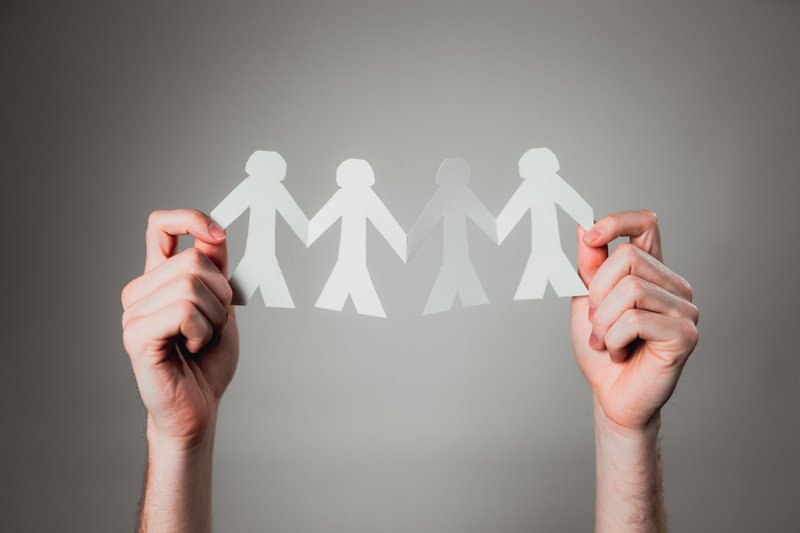Thanksgiving Season is Upon Us
Another Canadian Thanksgiving has come and gone and another American Thanksgiving approaches. As I sit down to write about being thankful, I realize that this might be pretty challenging to a lot of people.
These are difficult times. Our political system both north and south of the border is increasingly polarized. We’re still not through the pandemic, and in fact, the hospitals in Ontario are full-to-overflowing with Covid cases, both adult and pediatric. Inflation is making everybody more stressed as prices at the grocery store and gas pump keep rising, and our climate is already demonstrating the chaos that was predicted when experts spoke of global warming.
So how are we supposed to be thankful, right now? I think that we need to go beyond the facts of our situation and consider other ways to bring gratitude to our lives. Today, as I was going for my early morning walk, I was listening to the song, Changes, by David Bowie, that he recorded in 1971. It’s an oldie but a goodie. There’s a line in the song that goes, “Turn and face the strange.” That got me thinking.

Turn and Face the Strange
What does it mean to “turn and face the strange?” To me, it means embracing situations that make us uncomfortable as opposed to turning away from them. It means trying to understand people whose way of thinking and acting might be “strange” to us. It means being counter-phobic.
People with a counter-phobic attitude actively seek out the things that make them anxious or uncomfortable, as opposed to running away from these things. The counter-phobic person is the opposite of the avoidant person.
So how will embracing the strange and the uncomfortable result in us becoming more grateful at the end of 2022? Well, if we consider that so much of our unhappiness comes from feeling alone, isolated and alienated from one-another, it stands to reason that feeling more connected to people will make us happier. Embracing the strange is likely to build more and better connections, making us happier, and that will be something to be grateful for.

Stress Causes Unhappiness
Also, a lot of our unhappiness is caused by stress, and a lot of our stress is caused by feeling anxious and uncomfortable in new situations or around new people. If we could just “turn and face the strange,” so much of our anxiety and stress would dissipate and that too would be cause for celebration.
Maybe we can’t be grateful – yet – for the end of Covid, and we certainly can’t give thanks for a robust economic situation right now. We can’t feel appreciative of our political situation and climate change is nothing to give thanks over.

Being Counter-phobic
And yet, if we are able to be counter-phobic and embrace the people and situations that make us uncomfortable, we might just feel a whole lot better about everything.
This doesn’t mean that we suddenly become best friends with people whose lifestyles or political persuasions are utterly different from our own (although maybe it does), but it means that we have a more open mind and open heart.
It means that instead of running from the uncomfortable in fear, we explore it; we engage with it; we bring our curiosity and creativity into these situations. Turning and facing the strange means trusting ourselves to be able to tolerate surprises, even the potentially unpleasant kind.
Resilience is an incredibly important personality trait. It enables us to thrive when we face challenges. Those who are resilient can make lemonade out of the proverbial lemons. Those who lack resilience become overwhelmed and incapacitated by difficulties, both large and small.
When we trust ourselves to enter challenging, uncomfortable, or strange situations with people who aren’t like us, we grow as human beings. Every time we face such a challenge, we become stronger, more competent, and more capable. We become more resilient. The counter-phobic individual goes from challenge to challenge, becoming a better and better (and happier) version of themselves.
On the other hand, the avoidant person never gets the opportunity to face challenges head-on. They never get to develop confidence (or resilience) and they have few opportunities to develop competence. They remain anxious, ill at ease, and unhappy. When you choose not to “turn and face the strange,” you lose.
In my own life, I’ve surprised myself by befriending people who hold very different political views than I do. I’m a huge animal lover and I’ve made friends with people who don’t consider themselves “pet-people.” I’ve realized that I have a much higher tolerance for being around people who are “strange” to me, as long as these people aren’t being hurtful to me or others in the world.

Making Strange
There’s a phenomenon in infants at 8 or 9 months of age called, “making strange,” when they become fearful of any new person or situation. Fortunately, they grow out of this stage relatively quickly. For us adults, we need to remember that just because something is strange, that doesn’t mean it’s dangerous. We are much more sophisticated than an infant and we can make more informed decisions about what to approach and what to avoid.
In this season of Thanksgiving, with so much polarization and alienation around us, I suggest that we all try to “turn and face the strange.” If we can be more open to people and situations that are new and different, compared to what we’re used to, we might be happier and less stressed and therefore have more cause for gratitude, right now and in the months to come.
______
Sign up here for my free bi-monthly wellness newsletter that brings you fresh, thought-provoking content.
Subscribe to my YouTube Channel where you’ll learn simple tips for taking the best care of yourself and your loved ones.
Tune in to my Ruthless Compassion Podcast where I go in-depth about topics like mental health, trauma, and loneliness.



